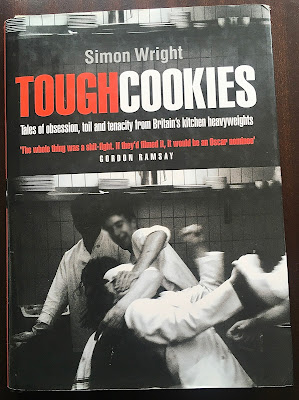A sort of lockdown continues and England is dormant. Well, I’m pretty dormant at any rate. The dog and I go for our daily walk across the local fields mainly but the spring is about as delicious as a plate of mange touts. In Bristol, hopeless and useless white middle class young people from comfortably off homes think they’re entitled to riot and break a few policemen’s bones and set fire to police stations whilst spreading the virus around each other in the hope they’ll all get a good dose of Long COVID which will give them an excuse for whining away their days for months on end instead of doing something useful. They may be needed when hospitality eventually rises from its long sleep to replace all the young Europeans who have been the backbone of the industry for so long and who have now headed back to their homes on the continent in the wake of the pandemic. To be honest the hospitality industry can do without these useless middle class British youths who have rarely any idea of how to talk to people and who have no sense of duty and service. Harsh? Well, it’s based on my experience of seeing some of them dealing with guests in hotels where they show little respect, even disdain, for the guests unfortunate enough to come up against them in the hope of receiving good service at their hands.
Which brings me to a different era but in terms of years not all that long ago. Unable to dine out I have resorted to catching up on my reading about the history of dining out in Britain. A key book is that published in 2005 by a former editor of the AA Guide and someone who worked in the restaurant industry, Simon Wright. The book, titled aptly Tough Cookies, is made up of two aspects - firstly it gave Wright the opportunity to unburden himself of what he perceived to have been a fairly traumatic event in his own life which was centred around the events leading to his resignation as editor of the AA Guide and secondly, and far more importantly, it details and sets out four long interviews with accomplished chefs of that period who had made it to the top in the white heat of 1990s and early 21st century restaurant scene - Gordon Ramsay, who’d spent much of his later childhood and youth in Stratford-upon-Avon, Marcus Waring, Heston Blumenthal and honorary West Midlander, Shaun Hill.
The candid interviews tell the reader of the importance for the emergence of British cuisine in the 1970s and 1980s of Le Gavroche, Marco Pierre White, the sheer determination and ambition which lifted white working class young men to the peak of their profession (no rioting for trendy causes for them), and the way modern British gastronomy can be traced back to almost a single common ancestor. These were men with drive and initiative who made the grade through hard work and a determination to achieve perfection in their art and craft in order to achieve their own personal goals. It’s an exciting little book full of illuminating and pleasing anecdotes.
For us here in the West Midlands, Shaun Hill is the key character. The book was written in the closing months of his days in Ludlow when he was master of his own historic restaurant in the town, The Merchant’s House. I had heard some of the anecdotes recounted in the book when Hill gave a cooking demonstration at the Ludlow Food Festival in 2017 (Blog 12) but the chapter devoted to him tells the story of how he arrived at Ludlow and his Michelin star in a career which seems a little less aggressive and uncertain than that of the other characters in the book but still has that essential element to deliver to his customers food of the highest quality as the common theme.
After the book was published Hill joined Wright at the Hay Book Festival of 2005 and the hour long interview is still available to listen to in the archives of the Festival’s website. The anecdotes in the book are restated but it’s interesting listening to them and it’s a well-passed hour listening to Wright conversing with Shaun Hill. Of course Hill is still producing his own take on excellent food in the Welsh part of the West Midlands at Abergavenny in Monmouthshire (down the railway line from Ludlow) at his own Michelin-starred The Walnut Tree which I really must visit while I’ve got the chance.
At the 2017 Ludlow Festival Hill’s book Salt Is Essential was for sale and I bought a signed copy. The subtitle is And Other Things I have Learned From 50 Years At The Stove and while the book is mainly a collection of recipes the opening few pages convey some of Hill’s culinary philosophy which more chef’s would benefit from imbibing - “Creative thinking is a bad idea if you know nothing”, “Confidence comes with experience and the understanding of what is central to a dish and what is peripheral” and “It is as unwise to attempt Gordon Ramsay’s or Raymond Blanc’s signatures at an early stage in your cooking career, as it is to rewire the house or rebuild your car and just a diagram to follow”.
For those interested in the history of British cuisine and how gastronomy developed here in these latter years, a read of Tough Cookies is an illuminating pleasure if not a must.





No comments:
Post a Comment